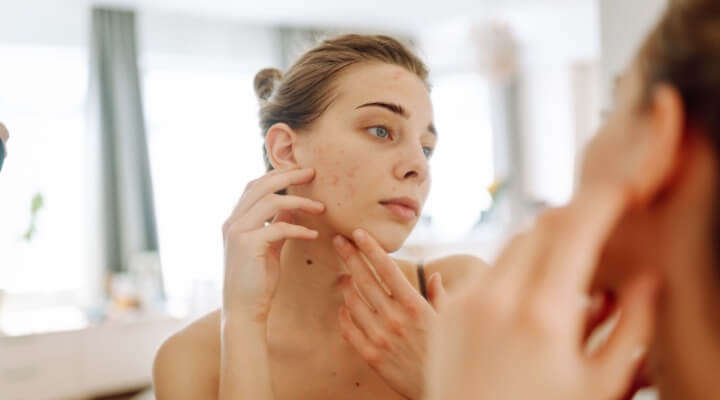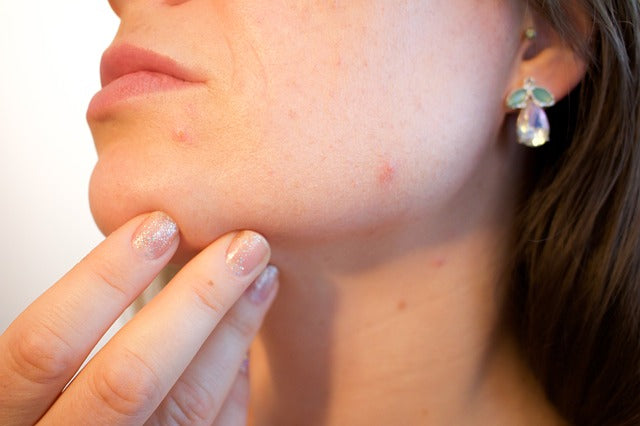The Importance of Sleep in Skin Health for Beauticians
As a beautician, you are no stranger to the quest for flawless skin. Whether it's recommending the right products or the latest treatments, your clients rely on you to help them achieve a radiant complexion. However, one often overlooked aspect of skin health is the importance of sleep. A good nights sleep can do wonders not only for overall health but also for the skins appearance and vitality. In this article, we will explore how vital sleep is for maintaining healthy skin, and why you should emphasize this to your clients.

Why Sleep is Essential for Skin Rejuvenation
During sleep, the body goes into repair mode. This is when growth hormones are released, aiding in the repair of skin tissues. The skin, being the largest organ, is constantly exposed to environmental stressors like pollution and UV rays. Sleeping allows the skin to recover from these daily aggressors. When your clients get enough rest, they wake up with a natural glow, thanks to increased blood flow to the skin during sleep.
Moreover, sleep helps in reducing stress levels, which are often linked with skin issues such as acne and eczema. Stress can lead to the release of hormones like cortisol, which in excess, can cause inflammation and breakouts. Thus, ensuring your clients understand the importance of sleep can help them achieve clearer skin.
The Beauty of REM Sleep
Not all sleep is created equal. The most beneficial phase of sleep is the REM (Rapid Eye Movement) stage. During REM sleep, the body increases its production of collagen, the protein responsible for keeping the skin firm and elastic. Without adequate REM sleep, the skin can become saggy and wrinkle-prone.
Educating your clients about the benefits of REM sleep can encourage them to develop better sleep habits. Suggesting a consistent sleep schedule and creating a relaxing bedtime routine can help improve the quality of their sleep, ultimately leading to healthier skin.
Common Skin Issues Linked to Poor Sleep
Lack of sleep can manifest in several skin problems. Dark circles and puffiness around the eyes are the most immediate indicators of sleep deprivation. This happens because fluid accumulates under the eyes due to poor circulation. Additionally, a lack of sleep can lead to a dull complexion as the skin fails to regenerate properly without adequate rest.
Inflammatory conditions such as acne and psoriasis can also worsen with inadequate sleep. Stress hormones, released in higher amounts when sleep-deprived, can exacerbate these conditions. Encouraging your clients to prioritize sleep can be as crucial as recommending the right skincare products.
Tips for Better Sleep and Improved Skin
As a beautician, you can offer your clients practical advice on how to improve their sleep quality. Here are some tips to share:
Create a Sleep-Conducive Environment
Suggest creating a calming bedroom environment. This includes dim lighting, comfortable bedding, and a cool room temperature to promote restful sleep.
Limit Screen Time
Encourage your clients to avoid screens at least an hour before bedtime. The blue light emitted by devices can interfere with the bodys production of melatonin, the sleep hormone.
Establish a Bedtime Routine
Recommend activities that signal to the body it's time to wind down, such as reading a book, taking a warm bath, or practicing relaxation exercises.
Conclusion
The importance of sleep in skin health cannot be overstated. As a beautician, guiding your clients to understand and prioritize sleep can make a significant difference in their skin's appearance and health. By integrating sleep education into your skincare consultations, you not only enhance your client's beauty regimen but also contribute to their overall well-being.
For more information on how lifestyle factors affect skin health, check out this article on diet and skin.

FAQs
How much sleep is ideal for healthy skin?
Most adults need between 7-9 hours of sleep per night for optimal skin health.
Can sleep deprivation cause permanent skin damage?
While occasional sleep loss won't cause permanent damage, chronic sleep deprivation can accelerate aging and exacerbate skin issues.
Are there specific skincare products that can compensate for sleep loss?
While no product can replace the benefits of sleep, using moisturizers and eye creams with ingredients like hyaluronic acid and caffeine can help reduce visible signs of fatigue.

